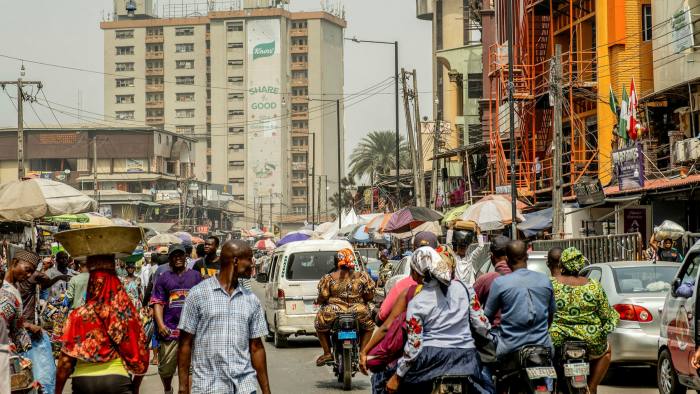BY SUNNY CHUBA NWACHUKWU
The products and services available in the marketplace supplied to meet customers’ or clients’ demands and satisfaction occur daily through economic and commercial activities within an economy. This scenario in microeconomics is part of social life for man’s sustainable existence because life must continue and should be maintained continually. Families must have food on the table (their daily bread) on a daily basis; transportation by air, land and sea (for travellers, and many other daily commuters moving from one place to another, in pursuit of their means of livelihood); the sick must have attention by receiving health care services, for maintenance of life and sustenance of healthy living; the offended and aggrieved must seek redress from the judiciary for correction of injustice meted against him, for justice to prevail through a laid down legal process (being the last hope of the common man); the social services and activities (sports, recreational, information sharing, musical and theatre arts entertainment and tourism, with the aspect of running hospitality business) cannot be left out because they are very vital to life and wellness. Otherwise, like the proverb goes, “all work and no play makes Jack a dull boy,” which is a statement of fact.

All kinds of professional and intangible services (with the exclusion of physical goods) are rendered daily by diverse providers, including, financial services, legal services, management consultancy services, human resources and recruitment services; road construction and building for physical development (involving building/civil/electrical/mechanical engineers, architects, town planners, land surveyors and quantity surveyors) with necessary social infrastructure; and, importantly, the artisanal services rendered by fashion designers and tailors in the fashion industry, automobile repairs by mechanics, carpentry works for furniture making, among many others. These productive, socio-economic activities that take place daily, are expected to be taken up by employable adults who put themselves forward to secure a job for pecuniary consideration and gains, in return as remunerations for services rendered or as monthly earnings or salaries for the hired employees, from which the person legitimately makes a living, by conveniently expending disposable incomes on personal needs.
In commerce, economic activities that majorly involve trading are visibly diligently and prudently handled with seriousness by determined and financially disciplined traders and entrepreneurs who are grouped under micro and small businesses or enterprises (SMEs) and together they collectively form an engine block as local investors. They are known and are thrust into the economic spotlight, and the majority of them are strategically focused on a backward integration template for the local market. By declaring impressive and favourable growth performances from their progressively accumulated marginal and very lean profits, they strategically rely majorly on high turnover rate/volumes, for the manifested macroeconomic success.
The Nigerian economy is a test-case, presenting a classical picture of a “failing economy” with age long mistakes made by politicians that have resulted in endemic and perennial corrupt practices, which have eaten deep into the fabric of the nation’s governance structure. The impact of this can only be corrected strategically with economic reform programmes, through a well articulated private sector driven plan. Such reforms should ensure that the investors are local old and tested operators and players in their various fields and sectors; people who clearly understand the terrain and the various spheres that existed in the past and still exist and waxing strong at various levels and respective moulds across the 774 local governments in the nation’s economy. This is the strategic and uniquely peculiar, sure-footed grassroots formula; with its intrinsic backward integration policy richly juiced with a well-packaged import substitution framework, thereafter, for the nation’s economic reforms agenda, that the government needs to apply and implement now for national economic emancipation.
These economic plans, policies and programmes are doable, feasible and bankable projects that would need to be implemented through the support of the state and its machineries, backed by very sincere political will, that would secure the confidence of prospective direct foreign investors (FDIs).
To achieve a highly productive economy, like the Chinese did within 40 years of planning, implementation and execution, through Deng Xiaoping who introduced the concept of the socialist market economy, that opened up for foreign investment and lowered other trade barriers, Nigeria must be visionary to achieve a high and stable GDP growth rate, and lift millions of Nigerians out of poverty (in the case of China, poverty dropped from 88 percent in 1981 to six percent in 2017). The Nigerian government also needs to significantly improve on critical human development sectors, like Health and Education (for instance). The economic growth roadmap to greatness and an affluent economy should be the major focus for Nigeria in her long term economic development programmes. As the policy formulators keep adjusting the reform agenda for the future of the nation’s economy, with a hard focused vision on international trade to be achieved and significantly actualized, through a set of designed development programmes and activities, towards accomplishing Nigeria’s economic mission for the 21st century and beyond.
Sunny Nwachukwu (Loyal Sigmite), PhD, a pure and applied chemist with an MBA in management, is an Onitsha based industrialist, a fellow of ICCON, and vice president, finance, Onitsha Chamber of Commerce. He can be reached on +234 803 318 2105 (text only) or schubltd@yahoo.com
business a.m. commits to publishing a diversity of views, opinions and comments. It, therefore, welcomes your reaction to this and any of our articles via email: comment@businessamlive.com








